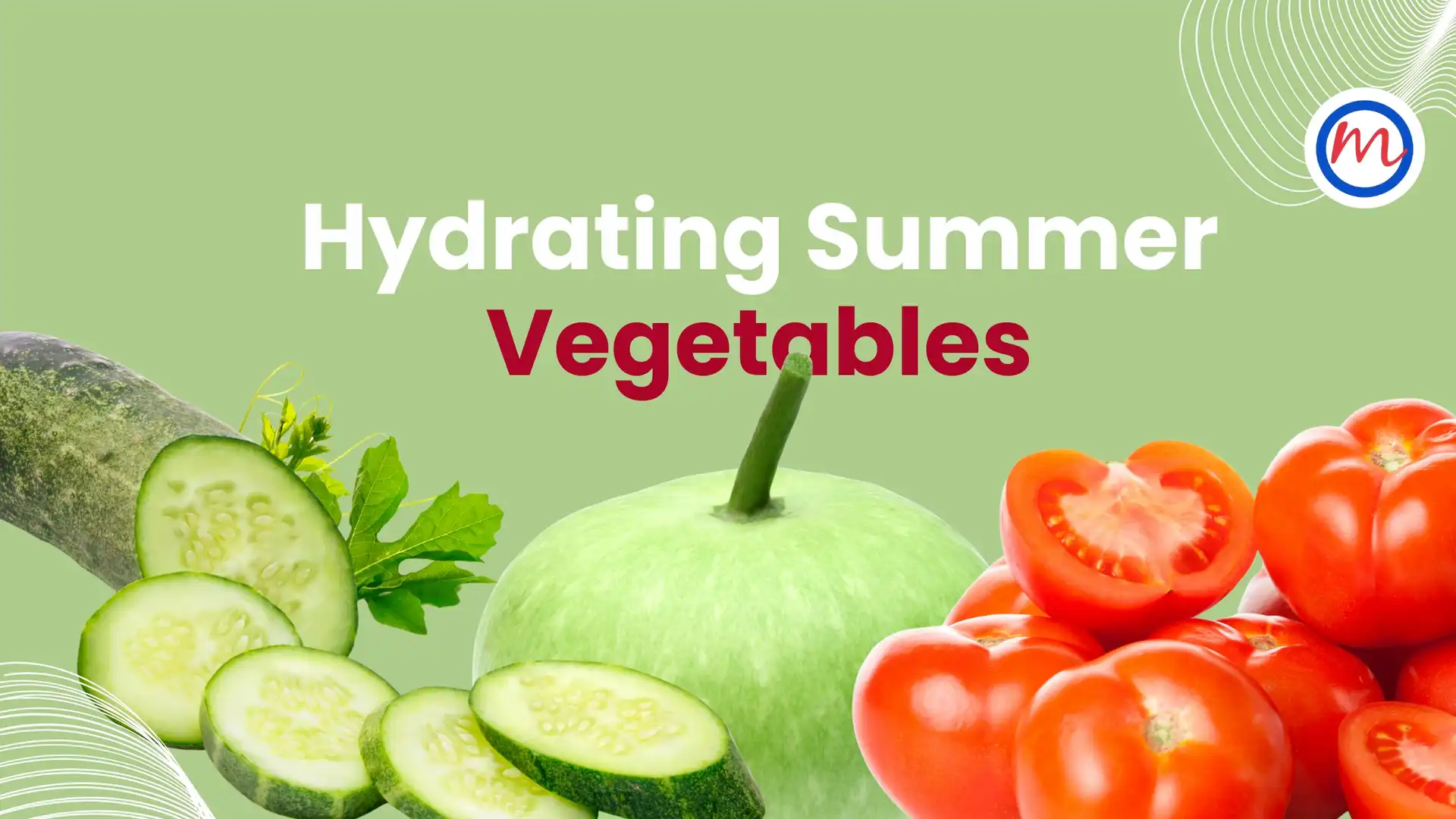Hydrating Summer Vegetables to Keep You Energised and Healthy
As the Indian summer heat intensifies, staying hydrated becomes critical for maintaining energy, focus, and overall health. Along with drinking plenty of fluids, consuming hydrating vegetables can help replenish water and essential minerals lost through sweating.
In this article, we highlight some of the best hydrating summer vegetables that are easy to include in your diet, especially for individuals managing diabetes.
Why Hydrating Vegetables Are Important in Summer
High temperatures can cause dehydration, leading to fatigue, headaches and poor digestion. Vegetables with high water content not only help maintain hydration but also provide:
- Essential vitamins and minerals
- Dietary fibre for digestion
Top Hydrating Vegetables for Indian Summers
-
Cucumber (Kheera/Vellarikka)
With about 96% water content, cucumber is one of the most hydrating vegetables available. It also provides vitamin K, potassium and antioxidants.
Usage: Add to salads, raita, or have plain slices with a sprinkle of salt and lemon.
-
Bottle Gourd (Lauki/Sorakkai)
Containing over 90% water, bottle gourd is hydrating and light on the digestive system.
Try: Lauki sabzi, soups or juice (without added sugar).
-
Tomatoes (Tamatar)
Tomatoes are about 94% water and rich in lycopene, an antioxidant that may support heart health.
Include: In salads, chutneys or cooked dishes.
-
Spinach (Palak)
Spinach contains a good amount of water and is rich in iron and folate, essential during summer.
How to eat: Lightly sauté or add to soups.
-
Ridge Gourd (Turai/Peerkangai)
Ridge gourd is hydrating and fibre-rich, helping regulate digestion and hydration.
-
Ash Gourd (Poosanikai)
Ash gourd’s high water content and mild flavour make it an excellent summer vegetable.
Tips to Maximise Hydration from Vegetables
- Eat vegetables raw or lightly cooked to retain water and nutrients
- Include them in soups, stews, and salads for variety
- Avoid deep-frying or heavy cooking methods that reduce water content
- Pair with fresh herbs like coriander and mint for flavour and additional benefits
Hydrating Vegetables and Diabetes
Most hydrating vegetables have a low glycaemic index and are rich in fibre, making them ideal for blood sugar management. They help you feel full and prevent overeating, supporting weight and glucose control.
Conclusion
Including hydrating vegetables in your summer diet not only helps maintain fluid balance but also improves digestion, energy levels, and blood sugar control. Embrace these vegetables to stay refreshed and healthy even during the hottest days.
🔗 For more tips on managing diabetes with diet, visit:
https://www.drmohans.com/diabetes-nutrition



